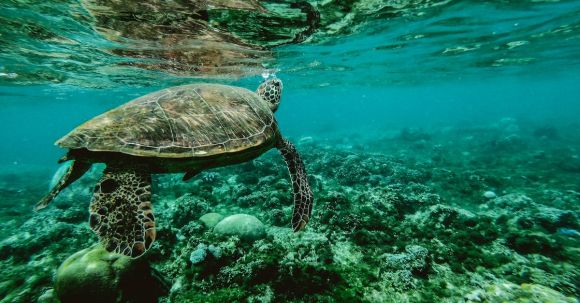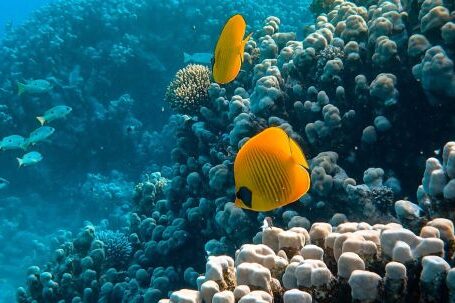The world’s oceans are teeming with life, hosting a diverse array of species that thrive in their watery habitats. From colorful coral reefs to deep-sea trenches, the marine environment is a treasure trove of biodiversity. In this article, we will take a closer look at the abundance of marine life and the importance of preserving it for future generations.
Rich Coral Reefs: A Haven for Marine Life
Coral reefs are often referred to as the “rainforests of the sea” due to their unparalleled diversity. These underwater ecosystems are home to a multitude of species, including fish, crustaceans, and mollusks. The vibrant colors of the coral provide shelter and food for countless organisms, creating a complex web of interactions. Sadly, coral reefs are under threat from human activities such as pollution and climate change. Efforts to protect these fragile ecosystems are crucial to safeguarding the many species that rely on them.
The Mysterious Deep Sea: A World of Discovery
While coral reefs are well-known for their beauty and diversity, the deep sea remains largely unexplored. With depths reaching thousands of meters, this mysterious realm is home to some of the most bizarre and fascinating creatures on Earth. From bioluminescent jellyfish to colossal squid, the deep sea is a testament to the resilience of life. Research expeditions and advancements in technology have allowed scientists to uncover the secrets of the deep, shedding light on the incredible diversity that exists in these extreme environments.
Mangroves: Guardians of the Coastline
Mangrove forests are found along the coastlines of tropical and subtropical regions. These unique ecosystems serve as a crucial buffer between land and sea, protecting coastlines from erosion and storm damage. Mangroves also provide a nursery for many marine species, including fish and crustaceans. The intricate root systems of these trees create a complex network of habitats, supporting a wide range of biodiversity. Unfortunately, mangroves are facing threats from deforestation and pollution. Conserving these vital ecosystems is essential for maintaining the health and productivity of our oceans.
The Importance of Marine Biodiversity
Marine biodiversity plays a crucial role in maintaining the balance of our planet’s ecosystems. Each species has its own niche and contributes to the overall functioning of the marine environment. From filtering water to cycling nutrients, marine organisms provide vital ecosystem services that support human well-being. Additionally, the oceans are a source of food and livelihood for millions of people around the world. Preserving marine biodiversity is not only an ethical responsibility but also a necessity for the sustainable future of our planet.
Conservation Efforts: A Ray of Hope
Despite the challenges facing marine biodiversity, there is hope for the future. Conservation organizations and governments are working together to establish marine protected areas and implement sustainable fishing practices. These efforts aim to safeguard vulnerable species and habitats, ensuring their survival for generations to come. Additionally, raising awareness and educating the public about the importance of marine biodiversity is crucial for inspiring action and fostering a sense of stewardship towards our oceans.
In conclusion, the abundance of marine biodiversity is a testament to the wonders of our oceans. From vibrant coral reefs to the mysterious deep sea, these diverse ecosystems harbor a multitude of species that contribute to the health and functioning of our planet. Preserving marine biodiversity is essential for ensuring the sustainability of our oceans and the well-being of future generations. By supporting conservation efforts and raising awareness, we can help protect the incredible wealth of life that exists beneath the waves. Let us embrace the beauty and richness of our marine ecosystems and work together to safeguard them for the future.





